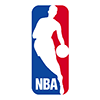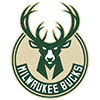2024 Stats
PTS
0.0
REB
0.0
AST
0.0
STL
0.0
BLK
0.0
2025 Projections

Will sign deal in Israel
Beverley announced Tuesday via social media Tuesday that he has agreed to a contract with Israeli club Hapoel Tel Aviv.
ANALYSIS
After 12 seasons in the NBA that included stints with seven different teams, the 36-year-old Beverley will head overseas for what could be the final season of his professional career. Beverley will bring ample experience to his new team after posting career averages of 8.3 points, 4.1 rebounds, 3.4 assists, 1.5 three-pointers and 1.1 steals in 26.6 minutes over his 666 appearances at the NBA level.
After 12 seasons in the NBA that included stints with seven different teams, the 36-year-old Beverley will head overseas for what could be the final season of his professional career. Beverley will bring ample experience to his new team after posting career averages of 8.3 points, 4.1 rebounds, 3.4 assists, 1.5 three-pointers and 1.1 steals in 26.6 minutes over his 666 appearances at the NBA level.
NBA Per Game Stats
Per Game
Total
Per 36
NBA Per Game Stats
Loading Per Game Stats...
2023 NBA Game Log
2023
2022
2021
2020
2019
2018
2017
2016
2024 NBA Per Game Split Stats
Schedule
By Month
Starting/Off Bench
Days Rest
Vs Opp
By Result
2024 NBA Per Game Split Stats
Loading Split Stats...
Advanced Stats
Loading Advanced Stats...
Stat Review
2023
2022
2021
2020
2019
2018
2017
2016
How does Patrick Beverley compare to other players?
This section compares his stats with all players from the previous three seasons (minimum 200 minutes played)*. The bar represents the player's percentile rank. For example, if the bar is halfway across, then the player falls into the 50th percentile for that stat and it would be considered average.
True Shooting %
54.7%
Effective Field Goal %
50.4%
3-Point Attempt Rate
45.2%
Free Throw Rate
26.1%
Offensive Rebound %
3.6%
Defensive Rebound %
14.0%
Total Rebound %
8.7%
Assist %
21.2%
Steal %
1.1%
Block %
1.8%
Turnover %
10.6%
Usage %
13.2%
Fantasy Points Per Game
16.2
Fantasy Points Per Minute
0.8
NBA Historical Fantasy Stats
Historical ADP
Loading Historical ADP...
Past Fantasy Outlooks
2023
2022
2021
2020
2019
2018
2017
2016
2015
2014
2013
The veteran Beverley is starting to bounce around the league. He split last season between the Lakers and Bulls after a 2021-22 campaign that saw him help the Timberwolves make the playoffs. He struggled to provide much of an impact with the Lakers, who eventually traded him to the Magic. The Magic bought him out, which paved a path for him to join a Bulls team that needed a starting point guard with Lonzo Ball (knee) out. Although he started all 22 games that he played with the Bulls, he only averaged 5.8 points, 4.9 rebounds and 3.5 assists. Now Beverley finds himself a member of the 76ers, who signed him to a one-year contract. Beverley would seem to be ticketed for a role off the bench behind James Harden and Tyrese Maxey. He would also have competition for minutes off the bench because of the presence of De'Anthony Melton. However, with Harden having requested a trade, there might be a path for Beverley to make his way into the starting five. Even if he does, though, he isn't much of a scoring threat and has averaged just 3.4 assists per game for his career. Outside of fantasy managers in deep leagues, it might be best to avoid Beverley on draft day.
More Fantasy News

Handed four-game suspension
The NBA announced Thursday that Beverley has been suspended four games "for forcefully throwing a basketball multiple times at spectators and an inappropriate interaction with a reporter during media availability" after Milwaukee's 120-98 loss to Indiana in Game 6 of their first-round playoff series May 2.
ANALYSIS
Subscribe now to instantly reveal our take on this news.
Subscribe now to instantly reveal our take on this news.

Available for Game 6
Beverley (oblique) is available for Thursday's Game 6 against the Pacers.
ANALYSIS
Subscribe now to instantly reveal our take on this news.
Subscribe now to instantly reveal our take on this news.

Probable for Game 6
Beverley (oblique) is probable for Thursday's Game 6 against Indiana.
ANALYSIS
Subscribe now to instantly reveal our take on this news.
Subscribe now to instantly reveal our take on this news.

Double-doubles in victory
Beverley accumulated 13 points (4-7 FG, 1-2 3Pt, 4-5 FT), four rebounds, 12 assists, one block and two steals in 36 minutes during Tuesday's 115-92 win over Indiana in Game 5 of the first round of the Eastern Conference playoffs.
ANALYSIS
Subscribe now to instantly reveal our take on this news.
Subscribe now to instantly reveal our take on this news.

Available to play
Beverley (oblique) is available for Tuesday's Game 5 versus the Pacers, Jeremiah Johnson of Bally Sports Indiana reports.
ANALYSIS
Subscribe now to instantly reveal our take on this news.
Subscribe now to instantly reveal our take on this news.
Latest Fantasy Rumors

Wants to stay with Bucks
Beverley, who's facing a four-game suspension, will be a free agent in the summer but wants to remain with the Bucks, according to Sam Amico of HoopsWire. "Obviously, I want to stay with Milwaukee, you know," Beverley said. "I want to see what goes here. I played well enough in the playoffs to [receive] a little bump. You know, that's the business side of it, so whatever happens with that happens. I loved playing in Milwaukee. Milwaukee was fire."
ANALYSIS
Beverley alternated between the bench and the starting lineup during the playoffs, and his veteran presence, along with his defensive ability, would be useful in any contending team. It's unclear whether the Bucks want to bring him back, or if they will explore other alternatives in free agency, though.
Beverley alternated between the bench and the starting lineup during the playoffs, and his veteran presence, along with his defensive ability, would be useful in any contending team. It's unclear whether the Bucks want to bring him back, or if they will explore other alternatives in free agency, though.



